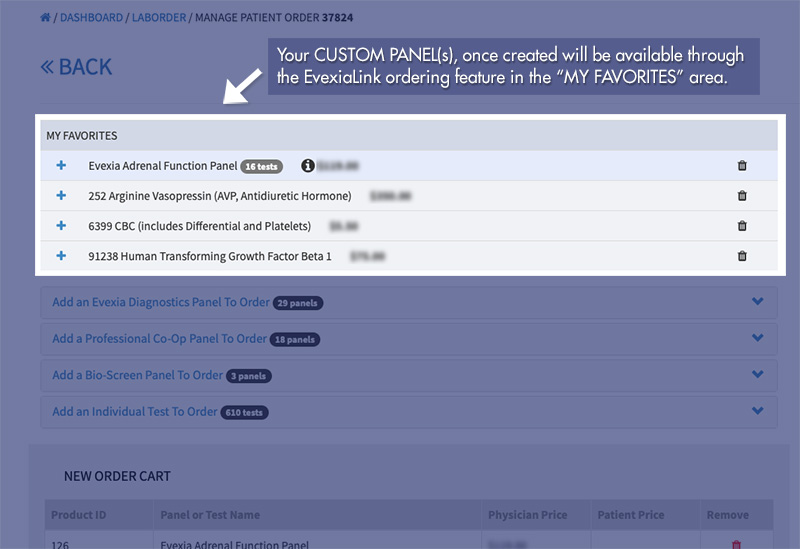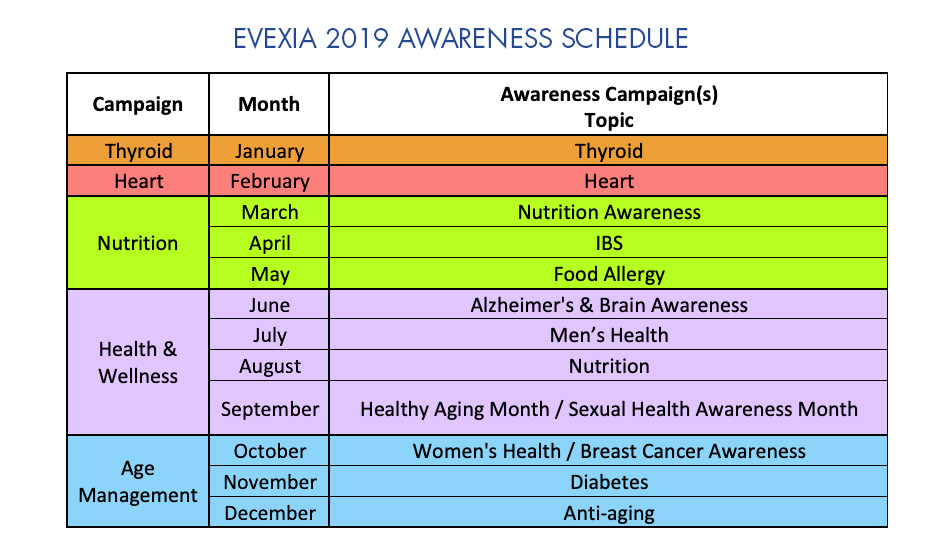
COLORECTAL CANCER LAB TEST SCREENINGS
Get Tested Today To Fight Against Colon Cancer.
SUGGESTED EVEXIA DIAGNOSTIC TESTS
CEA
Clinical Significance
Increased serum CEA levels have been detected in persons with primary colorectal cancer and in patients with other malignancies involving the gastrointestinal tract, breast, lung, ovarian, prostatic, liver and pancreatic cancers. Elevated serum CEA levels have also been detected in patients with nonmalignant disease, especially patients who are older or who are smokers. CEA levels are not useful in screening the general population for undetected cancers. However, CEA levels provide important information about patient prognosis, recurrence of tumors after surgical removal, and effectiveness of therapy.
Fecal Globin by Immunochemistry (InSure®)
Clinical Significance
The fecal occult blood test is an immunochromatographic fecal occult blood test that qualitatively detects human hemoglobin from blood in fecal samples. This is a useful screening aid for detecting primarily lower gastrointestinal (G.I.) disorders that may be related to iron deficiency anemia, diverticulitis, ulcerative colitis, polyps, adenomas, colorectal cancers or other G.I. lesions that can bleed. It is recommended for use by health professionals as part of routine physical examinations and in screening for colorectal cancer or other sources of lower G.I. bleeding.
AMAS Cancer Screening Test
Proven in over 50,000 tests.
Anti-Malignin Antibody is elevated in 93 to 100 percent of cases in which active non-terminal malignancy is the clinical-pathological diagnosis. Overall asymptomatic (‘false’) positives are 5 percent in sera shipped overnight (ref 04-08).AMA is normal in 96 percent of cancer patients who no longer have evidence of disease (ref 04, 06). Internally run, inter-technician-same-lab, and inter-lab variability are low, as reported in the Smith-Kline study (ref 06).
Every AMAS test is run under rigorous quality control.
Control solutions containing known amounts of standard monoclonal AMA are run with each test. AMA, when produced in vivo as mouse (ref 03) or as human (ref 07) immunoglobulin, and when isolated from human serum (ref 07) is predominantly IgM. Target® reagent shelf life is as long as 7 years.
The AMAS test may be useful as a diagnostic test.
A common clinical situation involves signs or symptoms suggesting a disorder which may or may not be malignant. While neither AMAS nor any other clinical laboratory test can by itself answer this question, AMAS test results may help the physician in the diagnostic process.
Measuring levels of a specic antibody, not an antigen.
AMA is the antibody to Malignin, a 10,000 Dalton polypeptide which has been found to be present in most malignant cells regardless of cell type or location (ref 01-08).
Measuring levels of a specic antibody, not an antigen.
AMA is the antibody to Malignin, a 10,000 Dalton polypeptide which has been found to be present in most malignant cells regardless of cell type or location (ref 01-08).
Unlike tests such as CEA, which measure less well-de ned antigens whose serum levels tend to be inconstant but elevated late in the disease, the AMAS test measures a well-de ned antibody whose serum levels rise early in the course of the disease. In some cases, the AMAS test has been positive (elevated) early, i.e. 1 to 19 months before clinical detection.
On the other hand, since antibody failure often occurs late in the malignancy, elevated antibody is then no longer available as evidence of the presence of antigen and therefore, late in the disease, the AMAS test cannot be used as a diagnostic test, but may be useful for monitoring (ref 04).
CA 19-9
Clinical Significance
A large percentage of patients with gastrointestinal tumors (such as pancreatic, liver, gastric, colorectal tumors) and some other malignancies have been shown to have elevated serum CA 19-9 levels. Serum CA 19-9 levels may be useful for monitoring disease activity or predicting relapse following treatment. CA 19-9 should not be used as a screening test.
ColoVantage® (Methylated Septin 9)
Clinical Significance
Methylated Septin 9 is a DNA marker associated with colorectal cancer.


